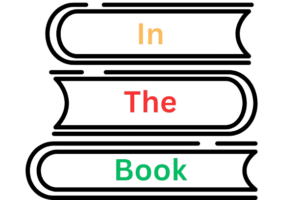As an aspiring author, you are probably familiar with the concept of book tropes. These recurring themes, plot devices, and character archetypes have been woven into storytelling for centuries. However, how do you navigate this landscape of tropes to create a compelling and original story?
In this article, we will talk about some of the best book tropes and offer guidance on when and how to use them effectively.
What Are Book Tropes?
Before we dive in, let us define what a trope is. A trope is a recurring theme or motif that appears across different works of literature, film, or other media. Tropes can be specific (like the “Chosen One” trope) or more general (like the “love triangle” trope).
They serve as storytelling shortcuts, allowing authors to tap into familiar patterns and expectations.
What is the Difference Between Literary and Genre Tropes?
Let us explore the difference between literary and genre tropes:
Genres:
Genres are broad categories or classifications that define a literary or cinematic work’s overall style, theme, and tone. They serve as a framework to categorize and organize stories based on shared characteristics.
Common genres include romance, fantasy, science fiction, mystery, thriller, horror, historical fiction, and comedy. Genres provide readers and viewers with certain expectations and conventions. They set the stage for the overall atmosphere and narrative structure.
Each genre has its own established norms, archetypes, and storytelling patterns, allowing for both familiarity and unique variations within the genre.
Tropes:
Tropes are recurring themes, plot devices, character archetypes, or narrative conventions commonly used in storytelling. Think of tropes as building blocks or tools that writers and filmmakers employ to create specific effects or evoke emotions in their audience.
Tropes can include familiar elements like the “chosen one” archetype, the “damsel in distress,” the “hero’s journey,” or the “cliffhanger” ending. Tropes can be both clichéd and subverted, depending on how they are utilized. Tropes are not inherently harmful; they can provide a sense of familiarity, create narrative tension, or even be deconstructed for fresh perspectives.
Relationship Between Genres and Tropes:
Interconnected: Genres and tropes are interconnected. Tropes often serve as building blocks within specific genres. While genres define the broader framework of a story, tropes act as the smaller, recurring elements that shape the narrative within that genre.
Tropes can exist outside of genres as well, appearing in various forms of media such as books, movies, TV shows, and video games.
The Good, the Bad, and the Overused
Not all tropes are created equal. Some are beloved by readers, while others have become eye-roll-inducing cliches. Let us explore a few of the best book tropes and discuss when they work well:
The Hero’s Journey
- What it is: The classic hero’s journey involves a protagonist who embarks on an adventure, faces challenges, and ultimately transforms.
- When to use it: The hero’s journey is versatile and can fit various genres. Use it when you want to explore personal growth and epic quests.
Enemies-to-Lovers
- What it is: Two characters start off as adversaries but gradually fall in love.
- When to use it: This trope works well in romance, fantasy, and even mystery. The tension between opposing characters creates delicious chemistry.
The Mentor
- What it is: A wise and experienced character guides the protagonist.
- When to use it: The mentor trope is perfect for coming-of-age stories or when your main character needs guidance.
Forbidden Love
- What it is: Characters from different backgrounds or opposing sides fall in love despite societal barriers.
- When to use it: Use this trope to explore themes of sacrifice, loyalty, and societal norms.
The Twist Ending
- What it is: A surprising revelation or unexpected turn of events at the story’s climax.
- When to use it: Save this trope for when you want to leave readers stunned and questioning everything they thought they knew.
Avoiding Tropes Pitfalls
While tropes can enhance your storytelling, beware of falling into these traps:
- If readers can guess the ending from a mile away, your story loses impact.
- Depending only on tropes without adding depth can make your characters feel one-dimensional.
- Tropes become tiresome when they are used excessively. Aim for a fresh twist.
Conclusion
In the world of storytelling, tropes are tools waiting to be wielded. As an author, embrace the best book tropes, but also challenge yourself to innovate.
FAQs
What is a Book Trope?
A book trope is a well-known plot device, character type, or literary technique commonly used in storytelling. Tropes create familiarity and connection with readers, but they can also become predictable if overused.
How Do Tropes Affect Book Sales?
Readers often search for specific tropes when looking for new books. Including popular tropes in your story increases discoverability. Examples: “Enemies to Lovers,” “Magical Creatures,” or a satisfying “Twist Ending.”








